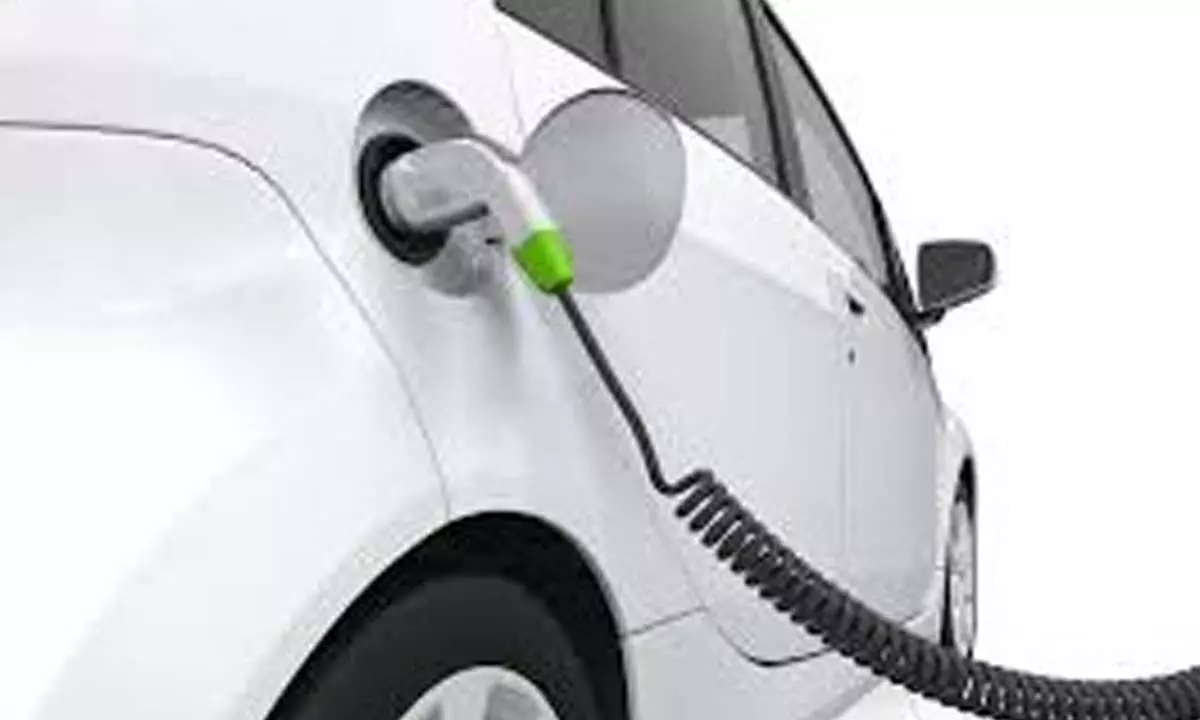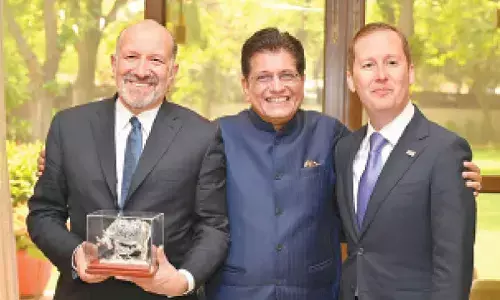Automakers engage in myth-busting campaign surrounding EV charging safety
Share :

Automotive companies in South Korea are pushing forward with their new electric vehicle launch schedules despite public concerns over EV safety, with key players actively campaigning to debunk unsubstantiated myths surrounding safe charging practices.
Seoul: Automotive companies in South Korea are pushing forward with their new electric vehicle launch schedules despite public concerns over EV safety, with key players actively campaigning to debunk unsubstantiated myths surrounding safe charging practices.
The latest fears surrounding EVs began after a spontaneous fire that began in a parked Mercedes-Benz EV wiped out an entire underground parking garage inside an apartment complex in Incheon, 27 kms west of Seoul, while damaging over 100 cars, reports Yonhap news agency.
Since then, many pundits have pointed out that fully or overcharged EVs could pose fire risks, while authorities have scrambled to present safety measures against such accidents. The Seoul city government announced a plan to discourage the entry of EVs that are more than 90 percent charged into apartment underground parking garages.
Various local governments across the country also have announced or were considering similar measures, including moving underground EV charging facilities to above-ground locations.
After having remained mostly reactive in their responses to such safety fears, car manufacturers are now coming out to actively promote the safety of EVs as they seek to resuscitate the automotive segment that has seen a recent slowdown in demand globally amid the so-called adoption chasm.
Industry heavyweights Hyundai Motor and Kia, in particular, are seeking a breakthrough in the global EV demand lull with their new affordable yet advanced models, the Casper Electric subcompact model and the EV3 crossover model, respectively.
The two companies said that their EV batteries are designed to be safe even when charged to 100 per cent, with the internal battery management system monitoring and controlling any issues that may arise.
They explained that the battery's charging capacity is calculated within a safety-verified range -- meaning that even when the battery is full, there is still additional capacity that remains unutilised.
Hyundai and Kia pointed out that in the case of ternary NCM (nickel-cobalt-manganese) batteries, while they can technically hold up to 275 mAh of energy per gram, battery manufacturers design them to use only 200 to 210 mAh per gram.
The automakers said car manufacturers, too, also set the 100 percent charge level while leaving some capacity unused when designing and producing cars.
They emphasised that the charging level displayed to consumers on car dashboard screens reflects the available capacity minus the margins set by both the battery cell and vehicle manufacturers -- meaning that a 100 percent charge does not actually indicate that the battery has been charged to its absolute maximum capacity.
The imported car companies are also actively addressing battery safety concerns as they prepare to launch new models.
Polestar Automotive Holdings, for instance, highlighted the safety of its Chinese CATL NCM batteries during the South Korean launch event for the Polestar 4 EV held in Seoul last week. A company official stressed that out of some 160,000 Polestar 2 units sold across 27 countries in the past, there have been no reported fire incidents.
Porsche Korea is planning to launch the electric Taycan in the second half of this year as scheduled. while Stellantis Korea is also set to release its first electric SUV model under its Jeep brand.
Additionally, BMW Group Korea, which sells vehicles under three brands -- BMW, MINI and Rolls-Royce -- in the country is also preparing to introduce the new Mini Countryman Electric later this year.
Central government authorities have also suggested that measures by local governments to arbitrarily restrict entry of EVs into parking facilities based on charging levels should be subject to closer review.
The government and the ruling party plan to announce a comprehensive safety plan later this month aimed at preventing EV fire accidents.







